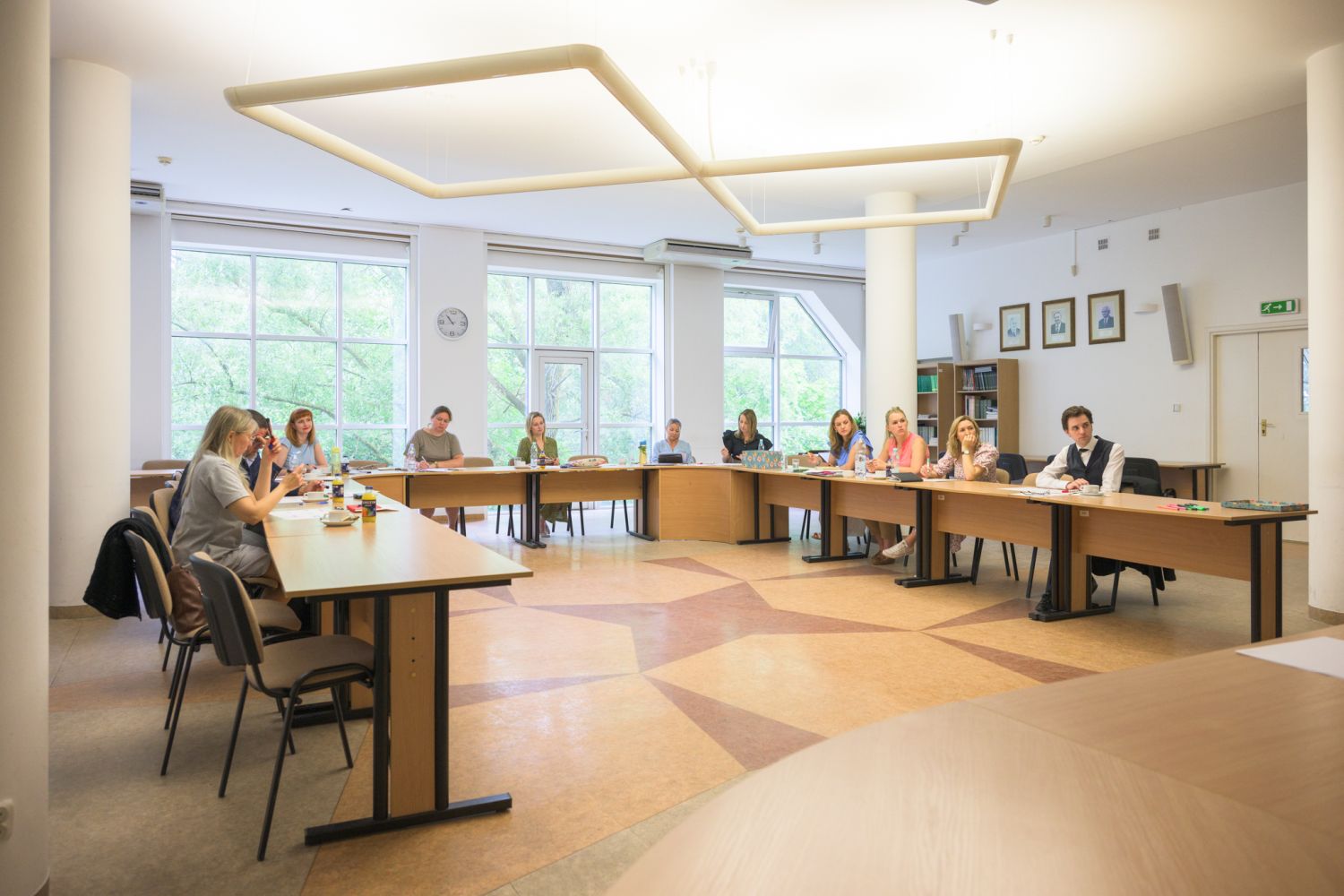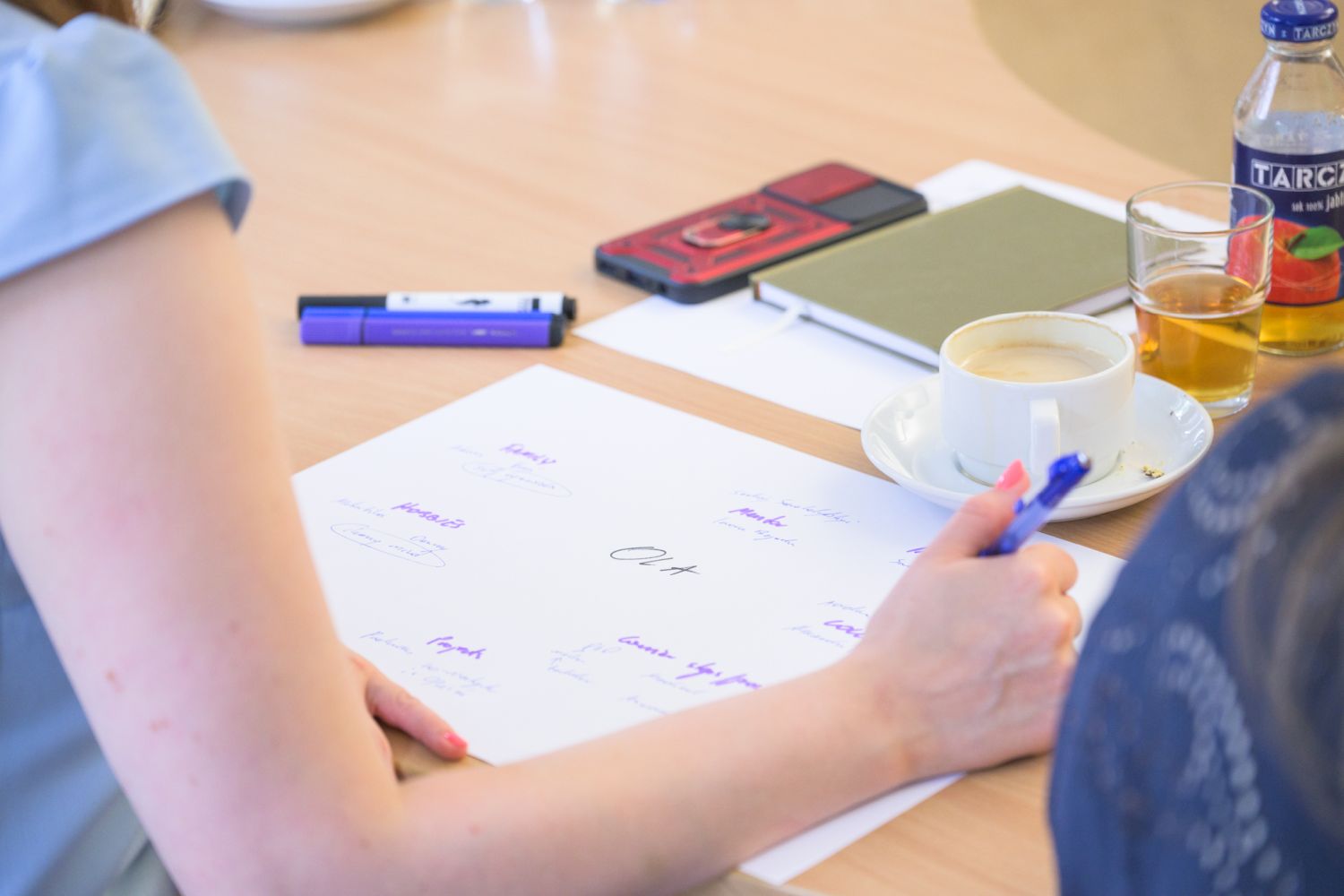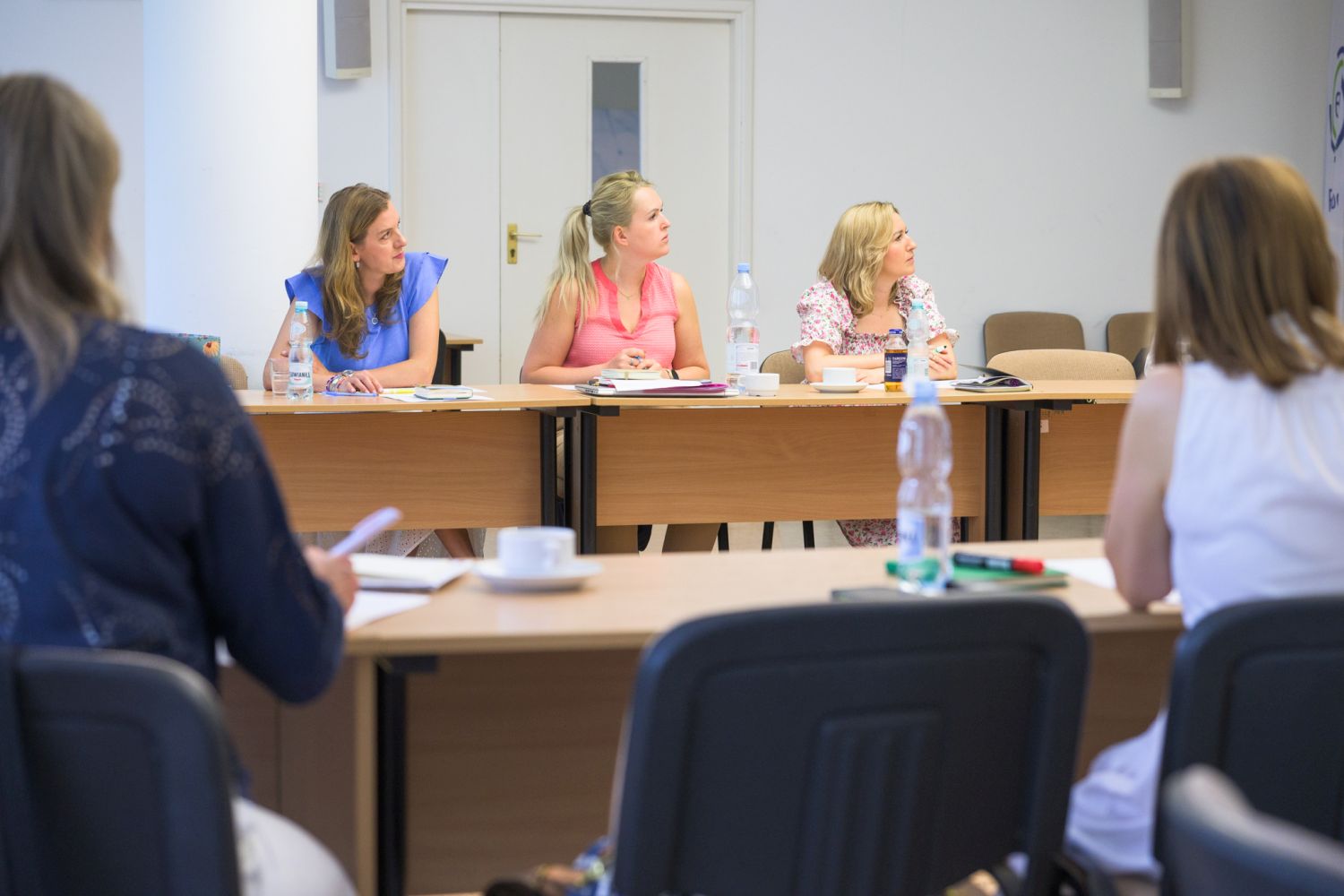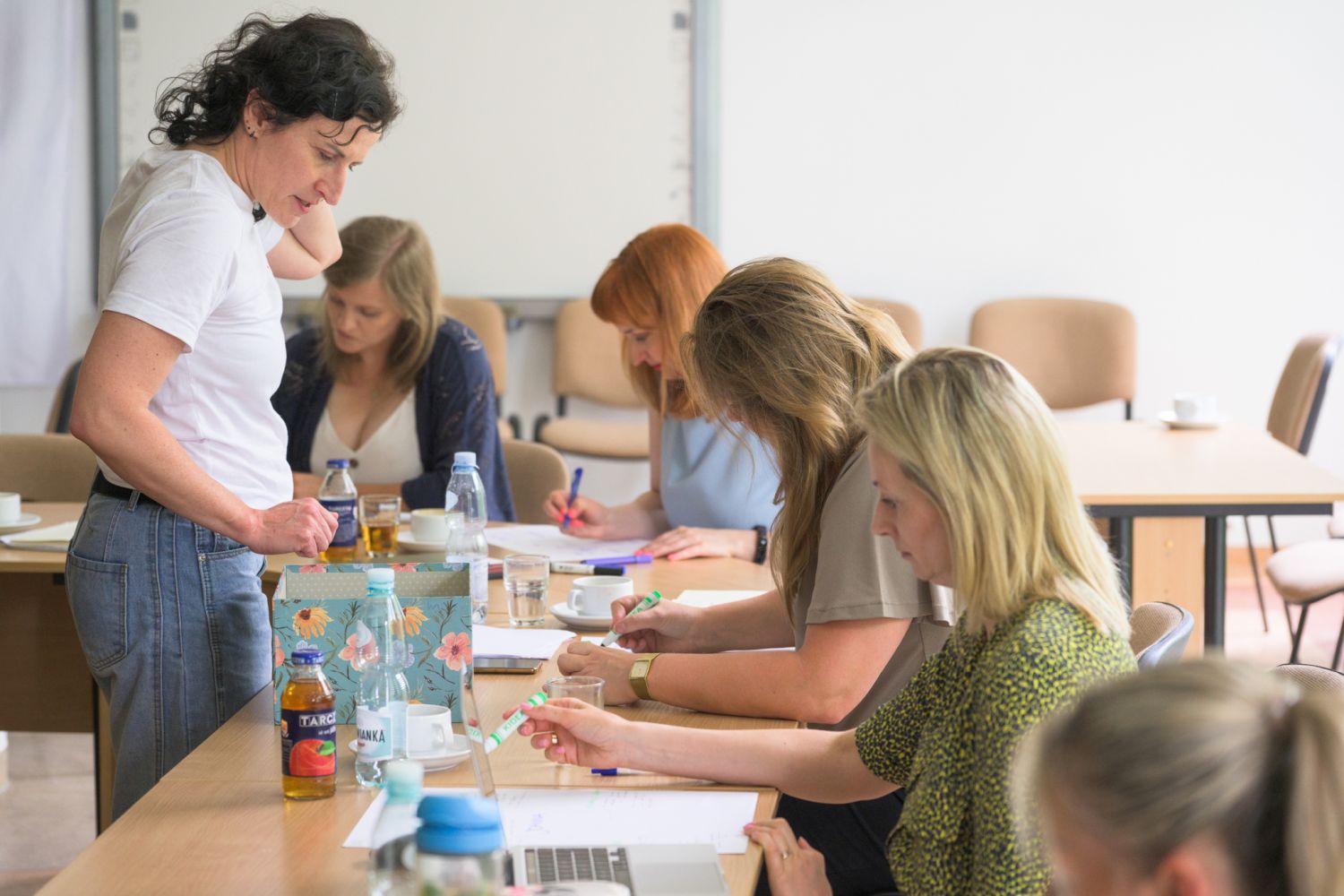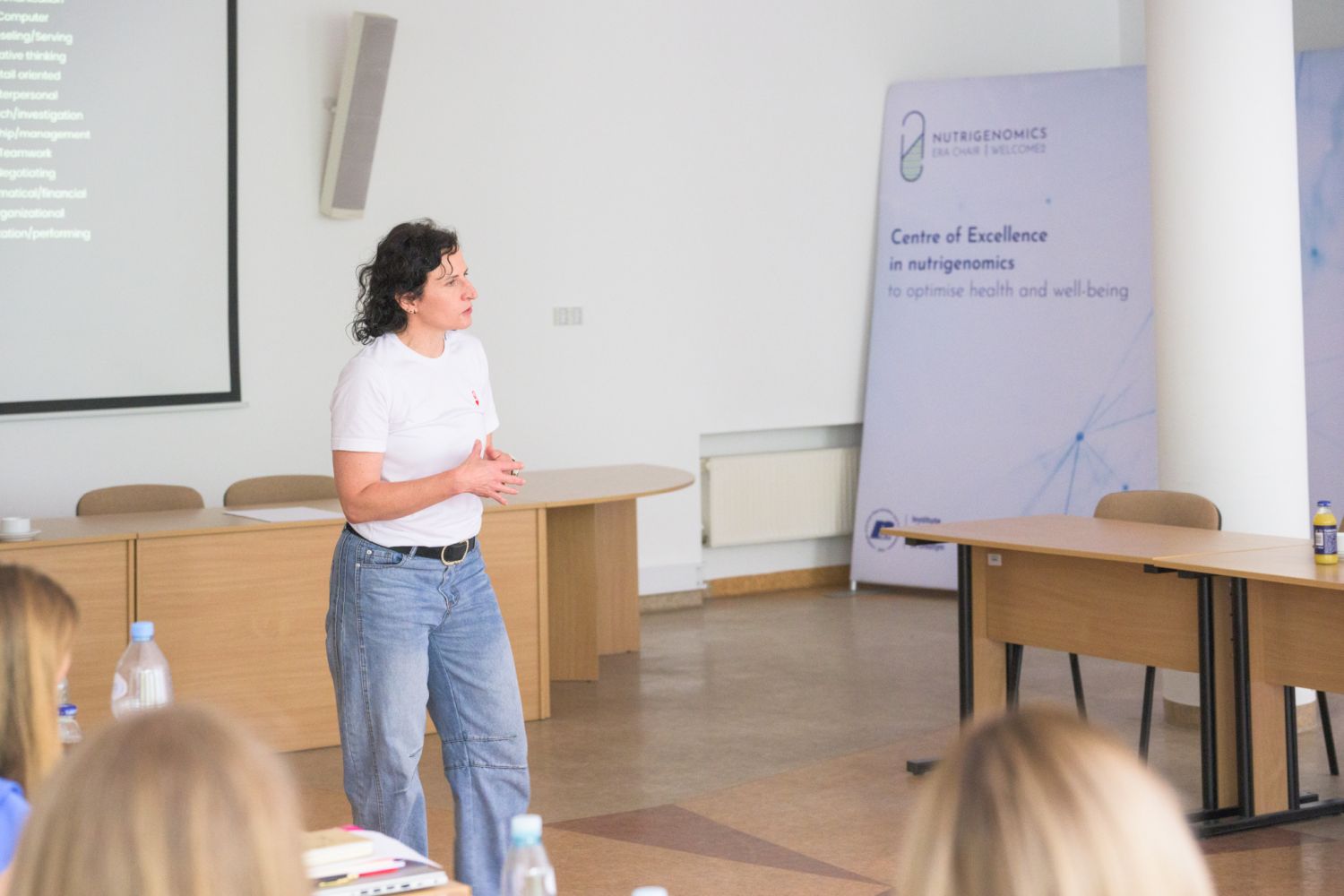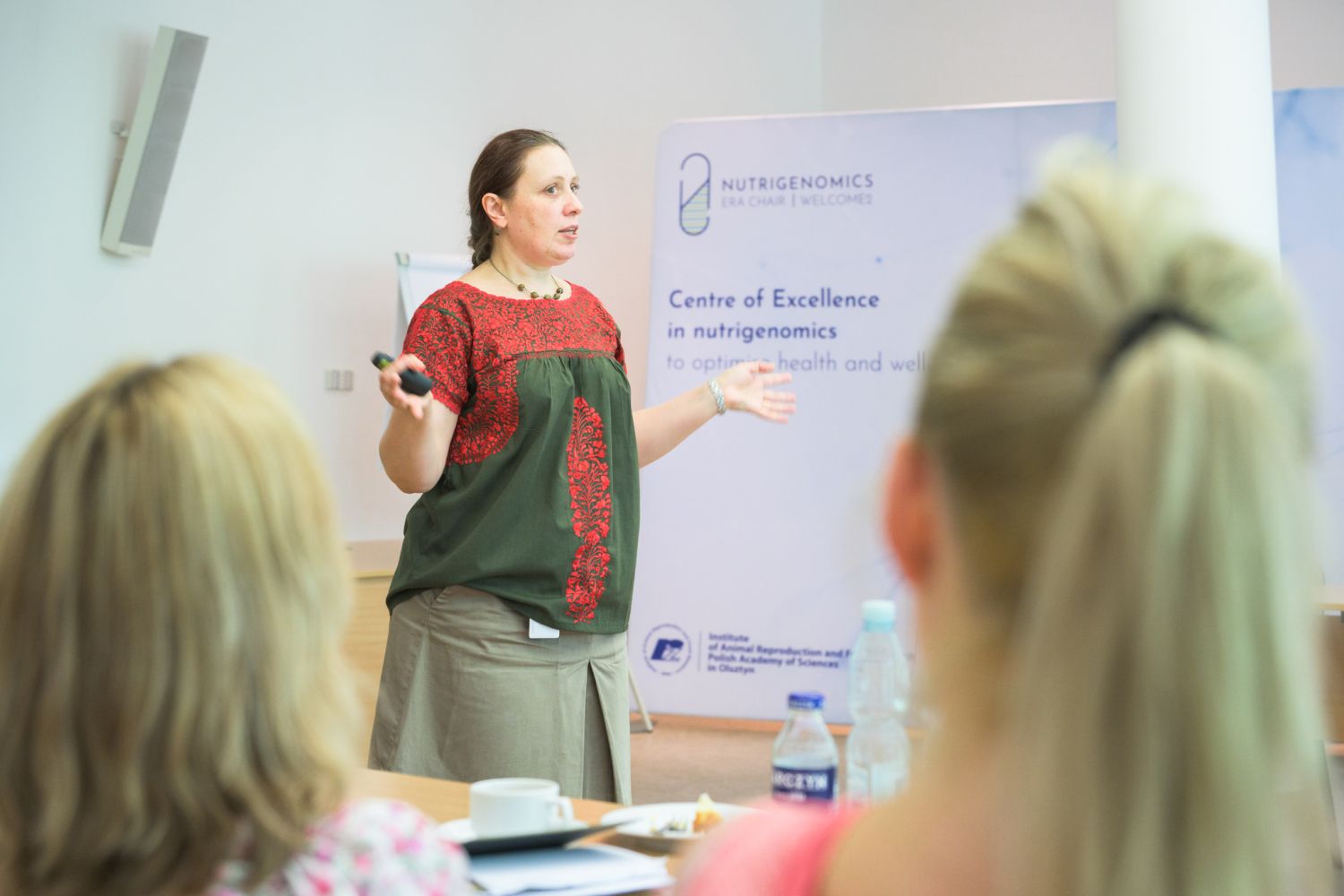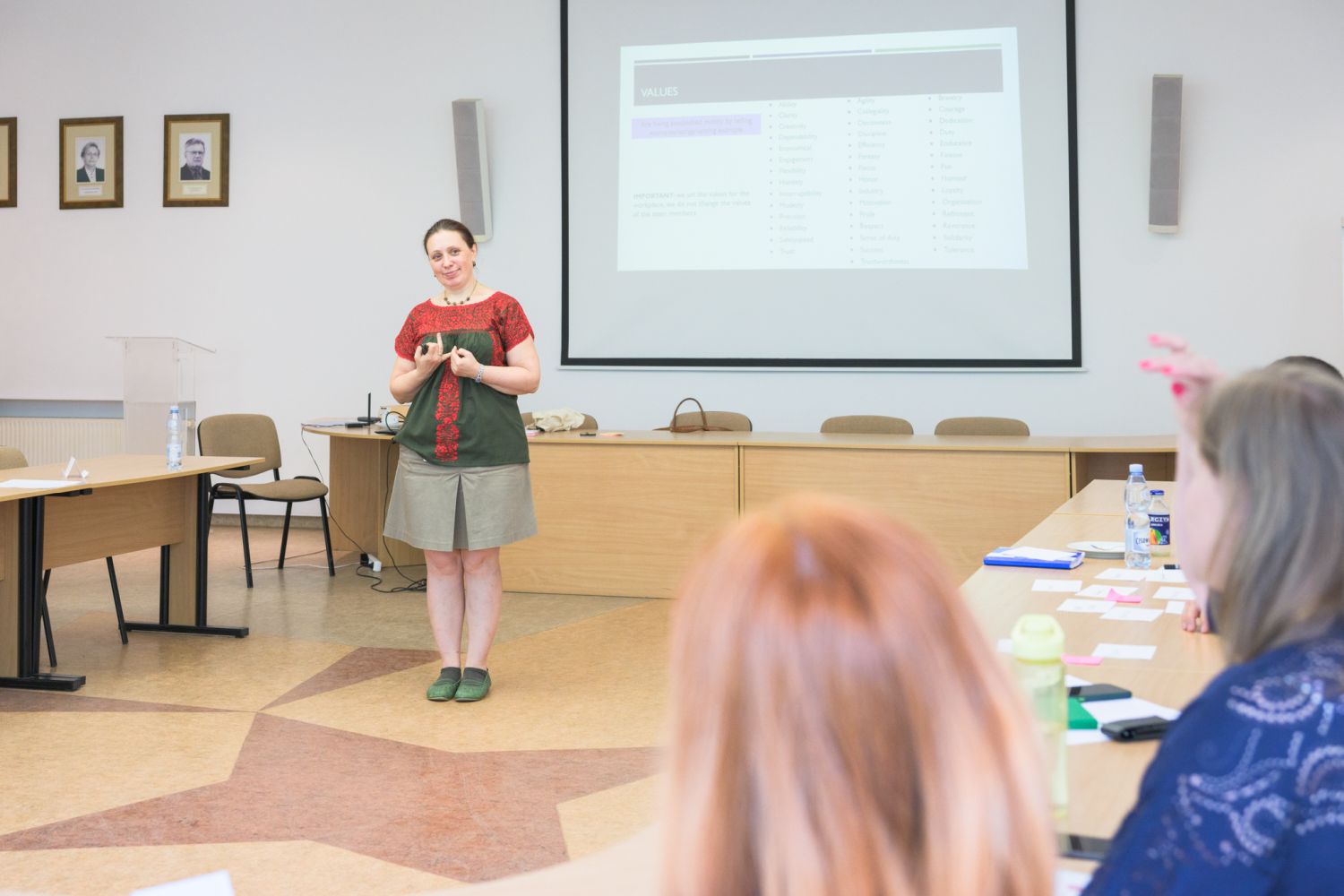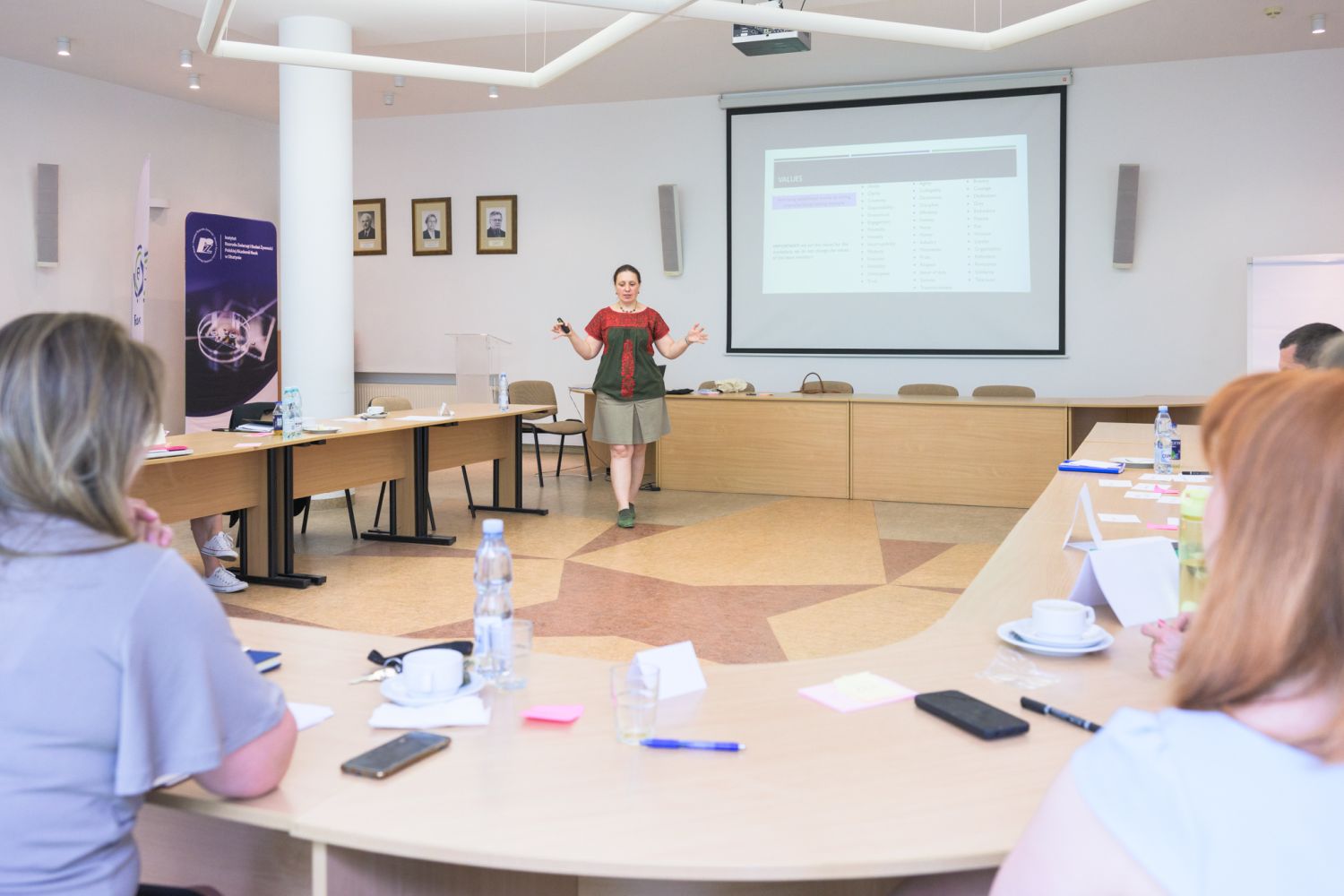On June 19, a one-off session of Rising Managers Academy was held. The classes were conducted by Magdalena Weidner-Glunde who provided the latest insight from the EMBO excellence methods in sciences supporting talented researchers at all stages of their careers, stimulating the exchange of scientific information, and helping build a research environment where scientists can achieve their best work. The second part of the day was dedicated to science diplomacy and career development in practice. The meeting was conducted by Monika Kaczmarek who developed “by scientist for scientists” classes to highlight the importance of conscious career management—not only for leaders but for all team members. It emphasizes that career development is an ongoing process that spans one’s entire life, encompassing home, education, and community. Different career development theories were discussed, with a focus on Donald Super’s theory.
The course explored the stages of exploration, establishment, and maintenance, highlighting the tasks needed and the social-emotional needs at each stage. The significance of being engaged in science diplomacy was described and explained as a global phenomenon and process by which nations, international organizations, and non-state actors represent themselves and their interests in the international arena. Participants selected the most impressive professional and non-professional achievements they had accomplished. They also explained their current goals and how they work daily to achieve them. Dr. Brooks’ Chaos Theory of career development and decision-making was introduced in practice through career wandering exercises. The last part of the workshop focused on mentoring and how it helps individuals grow and accomplish their goals. The necessity for leaders to adapt to the career development needs of their group members was explained, with attention to the changing generations, particularly Millennials and Gen Z, who will soon comprise the majority of the workforce. The final group exercise involved building a Ph.D./M.Sc. student profile, with special attention to the experiences they should have, the obstacles they will face, and the support they should receive during their career development.
